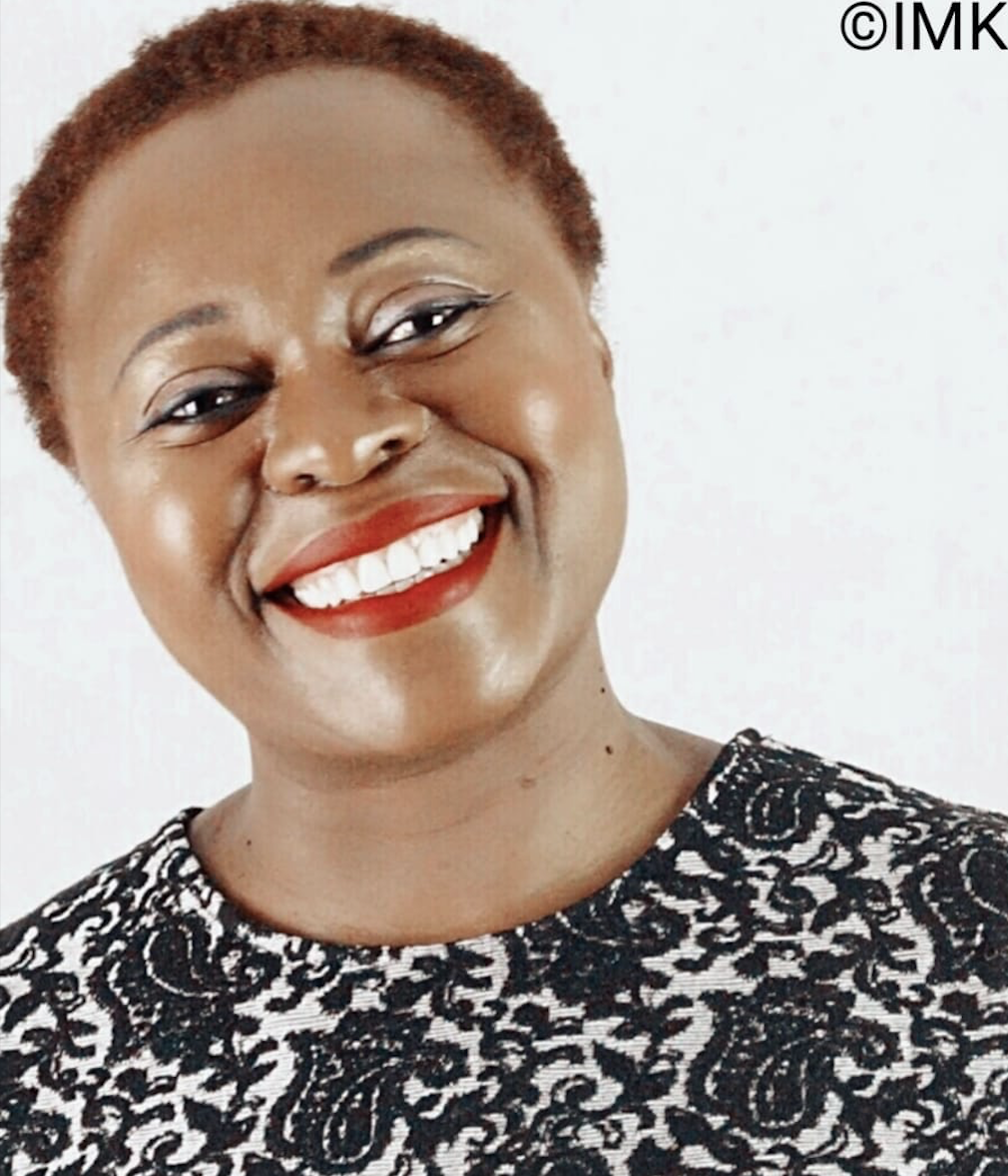By Georgiana Scott, Deputy Editor
Olivette intimately shares the whirlwind of activity and emotions that filled her lockdown period. From the weight of being expected to ‘solve racism and be the face of diversity’ to the enjoyment she’s found through gardening.
Olivette is the kind of person who makes you feel exceptionally unproductive.
Sitting in front of a particularly well-stocked bookshelf, from her home in Newport, Wales she charismatically launches into a fifteen-minute monologue of everything she has been doing since the beginning of lockdown in March. From being appointed chair for Bristol’s Race Equality Commission, to leading discussions for the Modern Slavery Advisory and Legacy Steering group, to contuning her academic research on memorialisation, to finishing her book ‘African Europeans: An untold history’ which is to be released 22nd October.
#AfricanEuropeans is brilliant. Congratulations @OlivetteOtele https://t.co/F6Q81dCajh
— Prof Kate Williams (@KateWilliamsme) October 8, 2020
Catching her breath, the mum of two tells me over Zoom: ‘It’s a lot and I am exhausted, but there aren’t many Black people in these places. So, it’s important to be there and encourage people to understand that individuals from all different backgrounds need to be integrated into these boards and committees. There are some where they don’t even have any women! So, for me, that is just not on.’
I remarked how the topsy-turvy working hours and conditions don’t seem to have slowed her down. ‘I am used to no start and no finish times. I became pregnant when I was doing my PhD, so I had to learn how to work faster and in different ways. I had to find ways. It has a lot to do with my background, what is expected from people like me’, she paused. ‘Actually, what is not expected of people like me. I sleep less, not because I want to sleep less but over the years I’ve slept less because I haven’t got time to do everything!’
When she does get the rare chance to relax, she has found gardening to be incredibly therapeutic. ‘You are just there in the moment and I have always been close with nature.’

Olivette, who in 2018 became the first black female history professor in the UK, is widely admired for both her expertise in European colonial and post-colonial history and her infectious joie de vivre.
She has studied Bristol’s associations with the transatlantic slave trade for 20 years. So, when the world watched Edward Colston topple onto Bristol's pavements to once again make a dent in Bristolian history, their attention simultaneously turned to Olivette for the answer of what should happen to the 17th century slave trader and his plinth.
Her response? ‘A public deliberative assembly. It has to be Bristol’s answer to its own question.’ But when asked what she personally wants to see happen, she is less sure. ‘It has been evolving in my head. At the moment, I like the plinth empty because this is where the city is right now. It’s debating with itself;... Do I necessarily even want to see a statue? I am not even sure.
‘The truth of the matter is, that as much as I am a historian working on memory and memorialisation, equally what is important to me is social change, economic change and the sheer poverty and deprivation that exists within a city that is so wealthy. While we are talking about the statue, we have single mums struggling because of COVID or charities that are delivering food to people – these are the stories that need to be talked about as well.’
£1million scholarship program launched to support Black-heritage students at Bristol
Six men receive £100 fine for bringing down Colston statue during BLM protests
Olivette was recently named by Prospect Magazine as one of the world’s top 50 thinkers; appearing on the list next to David Attenborough, New Zealand Prime Minister Jacinda Arden and authors who she greatly admired or whose thoughts annoyed her when she was once a student such as Jurgen Habermas and Cornel West.
However, she says the media attention brought with it an ‘overwhelming pressure to be the face of diversity and to solve racism.’ It seemed a world waking up to racial inequality and reckoning with the impact of historical figures such as Colston, were also relying on figures such as Olivette for direction.
‘This has been difficult, because the story of George Floyd has crushed so many black people, including me. It was really hard not to cry, not to be upset and then being asked to go and solve that – it’s just like, what do you want me to do?! Many people have been killed over the years and suddenly you want me to publicly go and say how people should… it was too overwhelming.’
‘As much as I am a historian working on memory and memorialisation, equally what is important to me is social change, economic change and the sheer poverty and deprivation that exists within a city that is so wealthy’
From what I had seen on social media, many university students shared in her emotional exhaustion. From being asked to share their deeply personal and painful experiences of racism to being bombarded by messages from well-meaning friends asking about race and what they can do to help.
What is Olivette’s advice for handling this kind of stress? ‘Don’t take on what will crush you and what will crush your soul. What are your priorities? Not the world’s priorities, but your priorities. Some people have only just realised what racism means and what it actually does now, and that’s overwhelming for a Black person like me who has lived with it all their life. And your first reaction is anger, like “how could you not see this?”
‘But there’s a beginning to everything and it’s a movement where there’s a shift in people’s lives and if that small sparkle can turn them into social justice fighters, then be generous in allowing them to do that. That’s what I would say.’
NEW EVENT: @BristolUni is committed to addressing the effects of Britain’s colonial past on our institution and teaching. Join our virtual panel discussion as part of #BlackHistoryMonth with @OlivetteOtele @LeonTikly @hillarygyebi @estoy_Eva @SquiresJudith https://t.co/Ij3lFvNfcQ pic.twitter.com/Q7jUjOqh7y
— Bristol Uni Events (@BrisUniEvents) October 8, 2020
She tells me how she takes her advice when it comes to Twitter. For, while Olivette does not shy away from broadcasting her thoughts to her 20,000 followers, using it as her ‘ranting page’, she holds her tongue when it comes to talking about the University of Bristol. ‘For the university, I believe I can still change a few things. Sometimes it’s about being generous to people and allowing them to actually develop and then work with them to make a change without bashing them to start with.’
Just as the interview was coming to an end, I asked what Bristol students can do to ensure the momentum of BLM is carried forward as they return to campus. ‘Mobilise! Mobilise as the University of Bristol students! There’s racism inside the university, so what are you going to do as a collective about it? Universities are not faceless, and management usually responds to the pressure of the students.
‘I strongly believe that wherever we are in life we can make a change and it’s a decision. It’s not easy because it takes your time, your energy and it takes dedication.
‘And with students: how do you support them? It’s not just about racism, how do you actually engage with people who have very different backgrounds and who are often a minority and feel isolated? What is it you can do that can help? It’s a case of reaching out - they might say “no, I don’t need your help”, but you do your bit, and then that’s all you can do.’
And with that, she had a thirty second break before her next meeting began. Thank you Olivette for taking the time to speak with us.
Featured Image: Adrian Sherratt
You can pre-order Olivette's book 'African Europeans: An untold history' here.









